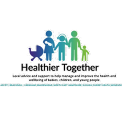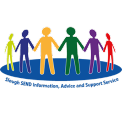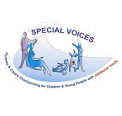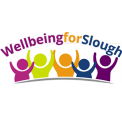Radicalisation

Radicalisation is when an individual or group adopt extreme political, social, or religious views that can lead to violence. The term is often used when referring to those who carry out or encourage acts of terrorism.
You may not believe your child could be involved in terrorism, but children of all ages can be influenced by people who don't have their best interests at heart.
Children may be exposed to radicalisation if they are:
- struggling with their identity
- isolated from peer groups or UK culture
- recovering from a traumatic event
- experiencing low self-esteem or family tensions.
Other factors like local community tensions and events in their region of origin may also cause children to be influenced by extreme ideas.
Risk of radicalisation to children with SEND
Anyone can be exposed to extremist ideas, and people from all walks of life can become radicalised. Although the risk is low, it is important to consider how children with social, emotional and learning difficulties may be at risk of being targeted by individuals aiming to radicalise young people.
Educate against Hate reports that some young people with special educational needs might be vulnerable to radicalisation, especially if they:
- have difficulty in interacting socially
- don’t understand the effects of their actions.
If your child experiences communication difficulties because of SEND, it can make it harder for them to tell you or a trusted adult that they are worried about extreme content someone has shown them.
Methods used to radicalise a young person
Children may be influenced into adopting radicalised views through a variety of methods.
- Online platforms can expose young people to extreme messages on social media or online gaming. Check our pages on online safety.
- Face-to-face influence by those within a peer group or in the community.
- Media can give young people extremist or incorrect messages through TV, magazines or newspapers.
Signs to be aware of
Some of these signs are typical in young people, but it is worth being aware of the following if your child:
- is not willing to listen to or engage with those who have a different opinion
- suddenly converts to a new religion, leading to a rejection of friends and activities they previously enjoyed
- spends a lot of time online or on their phone, and being secretive about what they are doing
- has several profiles on social media, using their own name or aliases to share extreme views
- supports groups with extreme political or religious views, who encourage illegal or violent action
- has extremist literature or is in contact with those who want to recruit to extremist groups
- joins or wants to join extremist organisations.
Trust your instinct if you feel something is not right. Some of these signs may indicate other safety concerns for your child, such as child sexual exploitation.
What can you do
Support your child and help them stay safe. This will make them less vulnerable and more willing to come and talk to you.
Try to:
- talk to your child about their interests
- listen when your child talks to you about their worries
- have open and honest conversations about boundaries
- talk to your child openly about news items on terrorism
- know what your child does online; who they talk to, what games they play and which sites they visit
- know your child's friends and their families
- get involved in the local community with your child
- encourage your child to develop interests and hobbies
- know the warning signs that your child might be at risk
- ask for support from your child's school if you are concerned.
If you are finding communicating with your child difficult, you may find it helpful to attend a parenting course. There are courses for parents of children and young people at different stages of development, as well as specialist courses for parents of children with additional needs and disabilities.
Where to get advice
- Educate Against Hate gives parents and teachers practical advice on protecting children from extremism and radicalisation.
- Think U Know provide education and tools to help keep children safe from sexual exploitation, abuse and inappropriate content on the internet.
- Prevent is the national programme which aims to safeguard children and adults by providing early intervention to protect and divert people away from being drawn into terrorist activity. Support can be provided through Channel - Slough Borough Council’s safeguarding panel. Email communitysafety@slough.gov.uk if you would like further information, have a query or concern.
If you are concerned about your child or family, call:
- the national anti-terrorist hotline in complete confidence, on 0800 789 321
- Crime Stoppers on 0800 555 111.





